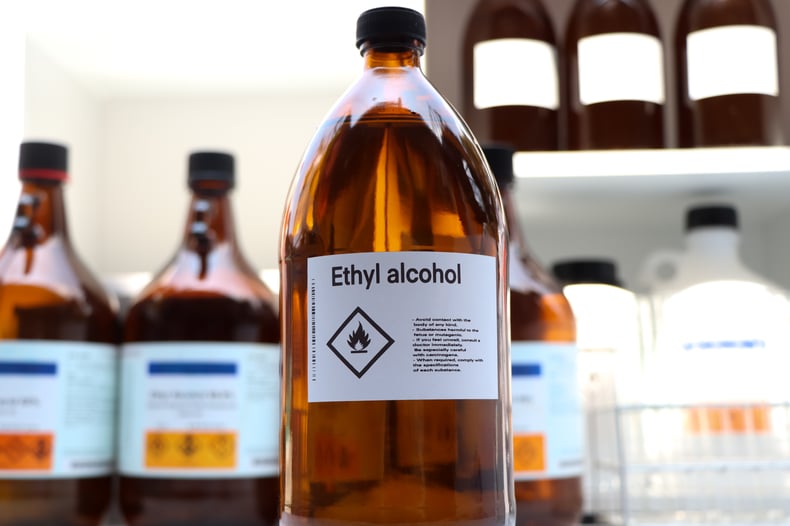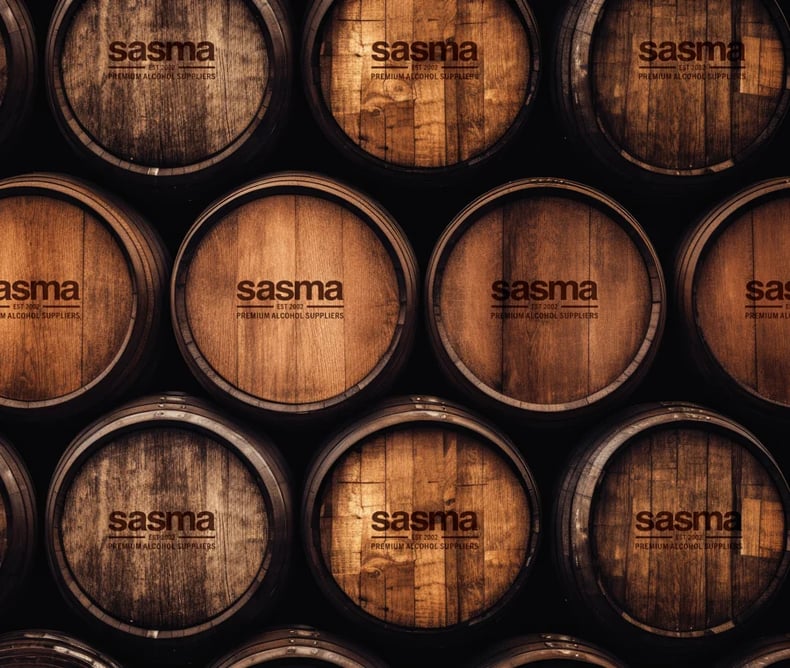
A Guide to Alcohol Certifications for Buying Alcohol in Bulk
Food Certificates
Organic USDA NOP certification
The United States Department of Agriculture (USDA) has a National Organic Program (NOP) to certify organic goods. Organic farming refers to the production of food in a way that attempts to minimize damage to the natural environment. It does not use GMOs and extends to the entire supply chain, including food processing, distribution and retailing. The entire organic production chain must be inspected to obtain certification.
Organic EU Certification
Organic is a legally protected term; a product may only be called organic if the production process complies with the EU’s legal regulations. Closed cycles using internal resources and inputs are preferred rather than open cycles based on external resources. Any external resources used should be organic materials from other organic farms, materials obtained naturally, natural substances, or mineral fertilizers with low solubility.
Allergen-free statement (EU) No 1169/2011
This is an EU regulation of the European Parliament and European Council on the provision of food information to consumers. This statement focuses on substances or products causing allergies or intolerances. Some examples of substances in this statement include cereals containing gluten such as wheat, rye, barley, oats, spelt, or kamut. Other examples of allergens are peanuts, eggs and soybeans. The statement means a product is free from all the mentioned allergens.
Fair Trade Certification
This certificate has an ethics-based approach and takes producers into consideration. Although any organization that wishes to be Fairtrade may apply, the certificate distinguishes between organization types, such as Small Producer Organizations and single plantations for example. Not all products can receive this certification; the products that can be Fairtrade certified are defined under the Fairtrade scope by Fair Trade International. The type of organization also affects the fees to paid, such as Small Licensees not needing to pay the initial application fee. To become certified, producers and traders must meet both Fairtrade Generic Standards and Fairtrade Product Specific Standards. Upon signing up for certification, audits will follow to get a business certified.
GMO statement
This statement refers to genetically modified organisms, or GMOs. GMOs must not be present or mix with the product, therefore including an allergen non-cross contamination aspect. Raw material suppliers need to provide a product specific declaration, as GMO not only refers to the goods produced but also whether these produced goods have come into contact with any GMOs during their production. A threshold exists for products to be declared GMO free. This threshold lies below 0.9% which means any non-GMO elements found are technically inevitable or accidental.
NON- GMO Project Certification
The Non-GMO Project aims to increase the availability of non-GMO products, and provide verified non-GMO choices. For this certification, products have been evaluated by a third-party technical administrator and meet the Non-GMO Project’s Standard for GMO avoidance. Systems for testing, traceability, segregation, formulation, labeling and quality assurance must be present.
NON-GMO Certification of Compliance
This certificate of compliance is closely linked to the NON-GMO Project Certificate, meaning a NON-GMO verified status has been achieved for at least one of a company’s products. The holder of this certificate warrants that their certified products will remain in full compliance with the NON-GMO Project’s terms and conditions.
Religious Certificates
Kosher Certification
A Kosher certification involves analysis and supervision, either by an organization or a Rabbi. Ingredients that can be easily obtained in Kosher and non-Kosher varieties (i.e. glycerin, vinegar, cheese, wine, oils, flavors, etc.) for example are deemed highly sensitive by kosher certification standards. The use of these ingredients will require more intensive supervision than foods that contain ingredients that are generally assumed to be Kosher or are almost always Kosher in practice. The dedicated transport and logistics of Kosher Alcohol must be done by dedicated kosher tank containers only and the unloading process in containers is kosher certified. The process of adding water to the alcohol is also done under strict supervision. All tanks and containers must be thoroughly kosher cleaned beforehand.
Pharmaceutical Certificates
GMP Certification
The GMP, or Good Manufacturing Practice certificate, is especially vital for pharmaceutical products. An internationally recognized GMP certification is often the only way that countries accept the import and sale of medicines. This certification and its standards focus on protecting the consumer; GMP eliminates errors and risks like contamination during production. The consumers are therefore reassured that they are purchasing functional and reliable products. The regulations require detailed written procedures from many parties, including manufacturers, processors and packagers of drugs, medical devices and active pharmaceutical ingredients. Although agencies for licensing can vary by country, GMP regulations always address certain issues including cleanliness, recordkeeping, qualifications of the employees, equipment verification, process validation and complaint handling. The GMP certification also has legal implications. GMP means the holder of the certificates accepts responsibilities for distribution, contract manufacturing and testing, and responds to product defects and complaints.
BP, EP, USP and JP specifications
The Ps in all these specifications stand for pharmacopoeia, legal standards for the pharmaceutical industry including directions for the identification of compound medicines and published by the authority of a government or a medical or pharmaceutical society. Some common pharmacopoeias include the British (BP), European (EP) and Japanese (JP). Another major one is the United States Pharmacopoeia (USP), which currently offers more than 3,500 Reference Standards. These standards are exceptionally specific and cover a broad range of products including drug substances, degradation products, excipients, food ingredients, impurities, dietary supplements, compendial reagents and performance calibrators.
Cosmetics Certificates
Organic COSMOS Certification
COSMOS (Cosmetic Organic Standard) is a worldwide private standard. It considers ingredients, processes, packaging and chemicals in relation to human health and the environment. COSMOS’ principles promote the use of ingredients from organic farming, environmentally friendly production processes that do not harm human health and is expanding the concept of ‘green chemicals’. Ingredients used in cosmetic products are sectioned into five categories with specific individual requirements. Minimizing packaging is also a priority and companies must have an environmental and waste management plan for their factories.
General standards & Certifications
ISO 9001:2015 Certification
ISO 9000 revolves around quality management for any product or service. Two major points of focus besides the regulations are customer quality and satisfaction. A company must also strive to continuously improve its performance. The standard was developed based on eight quality management principles and is known as a generic management system standard. This generic standard is extremely flexible and can therefore be applied to any organization. This certification does not discriminate between sectors and can for example be useful to business enterprises, public administration and government departments.
ISO 22000 Certification
Consumption of food should not be accompanied by fear. This certification deals with food safety, referring to the confidence that the food consumed will not harm you in terms of illness or injury. Any organization within the food supply chain can apply for ISO 22000 certification. Coupled with prerequisite programs and other food safety system requirements, audits check to see whether certain conditions are met. Audits determine whether the principles of a Hazard Analysis and Critical Control Point (HACCP) system developed by the Codex Alimentarius Commission are respected.
More information
Has your business specified what it would like certified? Sasma can supply products that comply with the regulations, specifications and certifications mentioned above. Send your inquiry for organic alcohol
Related articles
-

Meet Sasma’s New Warehouse Manager in Halsteren
Mark shares his background, his vision for safe & efficient operations, and how Halsteren will serve as a natural...Read more -

Is Ethyl Alcohol Halal?
Ethyl alcohol is widely used acrossmany supply chains, where it primarily serves as a functional ingredient rather than...Read more -

Sasma 2025 Year in Review
As we close out Q3, we share the key developments shaping our industry: global trade agreements & tariff shifts,...Read more -

Sasma Halsteren Facility On Track To Open April 2026
Sasma’s new Halsteren warehouse is progressing as planned, marking a significant investment in our long-term...Read more -

Exploring Bulk Whisky with Sasma: Quality, Customization, & Expertise
Understanding the factors shaping bulk alcohol pricing is crucial. Learn how raw materials, production processes, and...Read more -
.jpg?width=790&height=980&name=sasma-apr25-websize-366%20(1).jpg)
What Is A CAS Number and Why Is It Important?
Quality at Sasma more than a standard we adhere to. we're suppliers of bulk spirits & alcohol, from sourcing and...Read more


